Malay Muslim Views on Cosmetic Surgery: Religious and Ethical Perspectives
This study explores Malay Muslims’ perspectives on cosmetic surgery from both religious and ethical viewpoints, motivated by the increasing popularity of such procedures in Malaysia. Cosmetic surgery refers to medical interventions performed primarily to enhance physical appearance without a medical necessity. Procedures such as nose reshaping, liposuction, and breast enhancement or reduction have become more common, particularly among youth. This trend raises questions about the permissibility of these procedures in Islam and their ethical implications, especially in a religiously observant society. Thus, the study aims to assess the understanding and attitudes of Malay Muslims—primarily among International Islamic University Malaysia (IIUM) students and the broader Malaysian society—regarding cosmetic surgery, using both qualitative and quantitative methods.
The research seeks to address three key questions: How do Malay Muslims understand cosmetic surgery and its goals? What is the Islamic religious stance on cosmetic procedures? What ethical considerations do Malay Muslims associate with cosmetic surgery? These inquiries frame the study’s objectives: to clarify the definition and prevalence of cosmetic surgery among Malay Muslims, to assess its religious evaluation based on Islamic sources, and to understand its ethical dimensions within the Islamic context.
The study's scope is limited to Malay Muslims in Malaysia and focuses solely on elective cosmetic surgery, not reconstructive or emergency surgeries. It analyzes cosmetic surgery from two main perspectives: Islamic legal rulings and moral principles grounded in Islamic values. The significance of the research lies in guiding Malay Muslims—especially youth—toward making informed decisions grounded in Islamic ethics and jurisprudence. It also aims to assist medical professionals in aligning their practices with Islamic teachings and provide policymakers with evidence to develop religiously compliant medical regulations.
Methodologically, the research adopts both qualitative and quantitative approaches. The qualitative component involves an in-depth review of scholarly texts, fatwas, and medical literature. The quantitative aspect includes a survey distributed to 71 participants from within and outside IIUM to gauge general awareness, ethical views, religious opinions, and personal attitudes toward cosmetic surgery.
Several previous studies inform this research. One article from the Australasian Journal of Plastic Surgery notes the lack of a consistent definition of cosmetic surgery and how this ambiguity influences policy and ethical decisions. Another study by Mohammad Ali Al-Zuraib offers a comparative analysis of cosmetic surgery in Islamic jurisprudence and contemporary medical law, underscoring the need to reconcile modern practices with religious ethics. An article from Yale University by Alka V. Menon examines the cultural dynamics surrounding cosmetic surgery in Malaysia, suggesting that beauty ideals are influenced by transnational norms. A fourth key source, from the IIUM Medical Journal Malaysia, applies a Maqasid Shariah-based analysis to fatwas on cosmetic and reconstructive surgery, distinguishing between necessity, need, and beautification.
The survey results revealed insights into Malay Muslims’ views on cosmetic surgery. Demographically, most respondents were between the ages of 23 and 25, with the majority being male (67.6%) and undergraduates at IIUM (76.1%). The participants were predominantly from Islamic academic backgrounds, which likely influenced their religious and ethical perspectives. On awareness, 84.5% of participants reported being familiar with cosmetic surgery, though only 2.8% had undergone such procedures themselves. Nearly 78% said neither they nor their acquaintances had experienced cosmetic surgery. When asked whether cosmetic procedures are common among Malaysian youth, 43.7% were uncertain, 35.2% said no, and 21.1% believed they were.
Regarding personal intention, 84.5% said they would not consider undergoing cosmetic surgery, 11.3% were unsure, and very few were open to it. These statistics reflect a general hesitance rooted in religious and cultural beliefs. Ethically, 46.5% of respondents were neutral about whether cosmetic surgery is justified if it boosts self-esteem or mental health, while 39.5% agreed or strongly agreed. However, 70.4% emphasized the need for moral boundaries in cosmetic procedures, citing religious concerns and health risks as their primary reservations.
From a religious standpoint, 71.8% of respondents said the permissibility of cosmetic surgery in Islam depends on the case, indicating nuanced understanding. About 69% agreed or strongly agreed that undergoing surgery purely for aesthetics conflicts with Islamic teachings. Over 63% believed cosmetic surgery represents a change in God's creation, while 28.2% were unsure. Most participants indicated they would be influenced by fatwas or scholarly advice, emphasizing the strong role of religious authority in personal decision-making.
When asked about Islamic guidelines for cosmetic surgery, many participants suggested that non-permanent changes, medically justified procedures, and the use of halal materials are acceptable. Surgeries for cosmetic reasons alone, they argued, should not be allowed. Participants also expressed that greater religious institutional involvement is necessary to provide guidance. They referred to Islamic principles such as tawakkul (trust in God) and rida (contentment with God's creation), though some acknowledged Islam’s flexibility in cases of necessity.
The study finds that Malay Muslims’ attitudes toward cosmetic surgery are significantly influenced by religious doctrine and ethical values. Although most are aware of cosmetic procedures, few pursue them due to a belief that altering God’s creation without necessity is impermissible. Religion outweighs other factors such as cost, societal pressure, or mental health considerations. Hence, religious guidance is essential in navigating this issue.
From a jurisprudential perspective, cosmetic surgery can be divided into two types: necessary (e.g., for correcting deformities or injuries) and beautifying (e.g., for enhancing natural features). The former is broadly accepted in Islamic law under the principles of necessity, harm removal, and ease in hardship. It aligns with the objectives of Shariah (Maqasid al-shariah) by preserving life, mental health, and dignity. The latter, however, is generally deemed impermissible, as it constitutes unnecessary alteration of God’s creation and often stems from vanity. Religious texts such as the verse in Surah An-Nisa (4:119) are cited to prohibit such changes. Intention also plays a crucial role: if a procedure is done to alleviate genuine harm, it may be allowed, but if done solely for appearance enhancement, it is discouraged.
Islamic law also emphasizes that the doctor performing the procedure must be qualified, trustworthy, and transparent about risks and outcomes. Any violation of privacy, exposure of 'awrah' (private parts), or unnecessary harm must be avoided. Additionally, the commercial exploitation of cosmetic surgery—particularly the selling of body parts or treating it as a business devoid of ethical and spiritual considerations—is strictly forbidden.
From an ethical standpoint, the desire for beauty is natural, yet its commercialization through cosmetic surgery raises multiple ethical dilemmas. The pressure to conform to beauty standards propagated by social media and celebrity culture has distorted the original intent of cosmetic surgery from therapeutic to superficial. This trend has contributed to low self-esteem, especially among youth. However, ethical medical practice requires that procedures be carried out only when they are in the patient's best interest, especially concerning psychological wellbeing. Physicians must discern whether surgery is a medically necessary intervention or simply an attempt to fulfill fleeting aesthetic desires.
Another major concern is the commodification of cosmetic surgery. Many clinics now operate with profit-driven motives, compromising medical integrity and risking patient safety. In some cases, unqualified practitioners perform surgeries, leading to harmful outcomes. This not only violates professional ethics but also undermines the dignity and trust integral to the doctorpatient relationship.
Islamic ethics mandates that surgeries be evaluated using the Maqasid framework: necessity, need, and beautification. Operations done for medical or psychological necessity may be allowed, while purely beautifying ones should be discouraged. The principle of promoting benefit and preventing harm must guide all decisions. Furthermore, collaboration between religious institutions and health authorities is essential to ensure that cosmetic surgery practices remain within ethical and legal bounds. Regulatory frameworks must be established to ensure doctors are competent, patients are fully informed, and religious values are respected.
The study also highlights the legal implications of failed cosmetic procedures. Increasingly, courts recognize psychological harm as a valid claim for compensation. Islamic jurisprudence supports this, acknowledging the legitimacy of mental and emotional injury. This reinforces the need for patient rights, informed consent, and legal accountability in cosmetic surgery. Negligence on the part of medical practitioners warrants compensation under Islamic and civil law.
In conclusion, this research underscores that cosmetic surgery among Malay Muslims is shaped by strong religious convictions and ethical reservations. While modern medicine may normalize such procedures, Malay Muslim society remains cautious, prioritizing Shariah compliance and spiritual well-being. Acceptable cosmetic surgery is one that fulfills a legitimate medical or psychological need and abides by both ethical and religious guidelines. Any elective procedure pursued for mere enhancement, influenced by external societal trends, is seen as morally questionable and religiously impermissible. The study calls for a balanced, faith-driven framework that safeguards both individual dignity and communal ethics, ensuring that medical advancements serve humanity without compromising core Islamic values.
Authors:
Muhammad Adib Fahmi bin Muhammad Faris
Muhammad Hasif bin Yusof
Muhammad Najman Daniel bin Muhammad Faizal
Muhammad Luthfi bin Muhammad Fauzi
Mohammad Hafiq Aiman bin Ramli
[Authors are pursuing their bachelor's degree in Islamic Revealed Knowledge and Heritage (Fiqh and Usul al-Fiqh) at AHAS, KIRKHS, in the International Islamic University Malaysia.]
[As part of Synergised Academic and Student Activities, this article was prepared for the course RKFQ 4315, Qadaya Fiqhiyyah Mu’asirah: Contemporary Juristic Issues at AHAS KIRKHS, IIUM (Sem 2, 2024-2025]
References
Al Zuraib, Mohammad Ali G., “Cosmetic Surgery in Islamic Jurisprudence: A Comparative Analytical Study with Contemporary Medical Law,” Journal of Neonatal Surgery, (Karachi: Association of Paediatric Surgeons of Pakistan). Vol. 14. No. 12. 2025. file:///C:/Users/acerz/Downloads/4361-Article%20Text-16763-1-10-20250422.pdf .
American Society of Plastic Surgeons. 2023). 2023 Plastic Surgery Statistics Report) https://www.plasticsurgery.org/documents/news/statistics/2023/plastic-surgery-statistics-report-2023.pdf
Barone, M., Cogliandro, A., & Persichetti, P. 2017). Ethics and plastic surgery/What is plastic surgery? Archives of Plastic Surgery), 44(1) https://doi.org/10.5999/aps.2017.44.1.90
Barone, Marco, Andrea Cogliandro, and Paolo Persichetti. “Ethics and Plastic Surgery: What is Plastic Surgery,” Archives of Plastic Surgery. (Seoul: Korean Society of Plastic and Reconstructive Surgeons). Vol. 44. No. 1. 2017. https://doi.org/10.5999/aps.2017.44.1.90 .
Dean, N. R., Foley, P., & Ward, H. 2018). Defining cosmetic surgery Australasian Journal of Plastic Surgery).1(1)), 96–102). https://researchnow-admin.flinders.edu.au/ws/portalfiles/portal/21121551/Dean_Defining_P2018.pdf
Hamdan, Mohammad Naqib, Mohd Anuar Aminudin, Nur Najwa Hanani, Muhammad Faiz, and Syamsul Azizul. “The Application of Maqasid-Oriented Approach in Islamic Bioethics: A Case Study on Fatwa Related to Cosmetic. Plastic and Reconstructive Surgery,” IIUM Medical Journal Malaysia (IMJM). (Kuala Lumpur: International Islamic University Malaysia). Vol. 20. No. 1. 2021. file:///C:/Users/acerz/Downloads/noyu,+11.+The+Application%20(1).pdf .
IIUM Medical Journal Malaysia. “Applying Maqasid Shariah Approach in Islamic Bioethics: A Case Study on Fatwas Regarding Cosmetic and Reconstructive Surgery,” IIUM Medical Journal Malaysia (Kuala Lumpur: International Islamic University Malaysia). Vol. 20. No. 1. 2021.
Islam Question & Answer. “Is Plastic Surgery Haram?” https://islamqa.info/en/answers/1006/is-plastic-surgery-haram (accessed 21 May 2025).
Islamic Fiqh Academy. “Plastic Surgeries and their Shariah Rulings,” https://iifa-aifi.org/en/32968.html (accessed 21 May 2025).
IslamOnWeb. “Cosmetic Surgery: Reviewing from an Islamic Perspective,” https://en.islamonweb.net/cosmetic-surgery-reviewing-from-an-islamic-perspective (accessed 21 May 2025).
IslamWeb. “Cases That Make Cosmetic Surgery Permissible – Fatwa,” https://www.islamweb.net/en/fatwa/385405 (accessed 21 May 2025).
Johns Hopkins Medicine. (n.d. Facial reconstruction after trauma: Scott's story. Retrieved May 20, 2025, from https://www.hopkinsmedicine.org/health/treatment-tests-and-therapies/facial-reconstruction/patient-story-scott
Mendelson, Bryan C., “Aesthetic/Cosmetic Surgery and Ethical Challenges,” Aesthetic Plastic Surgery, (New York: Springer). Vol. 32. No. 6. 2008. https://doi.org/10.1007/s00266-008-9243-6.
Menon, A. V. Cultural gatekeeping in cosmetic surgery: Transnational beauty ideals in multicultural Malaysia [Manuscript]. Department of Sociology, Yale University. Published by Elsevier under Elsevier user license. 2019.
New York Post. 2024, March 15). 'Selfie culture' is driving people to get plastic surgery so they look like filtered photos: Study). https://nypost.com/2024/03/15/selfie-culture-is-driving-people-to-get-plastic-surgery-so-they-look-filtered/
Scott, J. 2024, March 22). Reconstruction after skin cancer). Verywell Health. https://www.verywellhealth.com/reconstruction-after-skin-cancer-4020310
SeekersGuidance. “Is Cosmetic Surgery Permissible?” https://seekersguidance.org/answers/hanafi-fiqh/is-cosmetic-surgery-permissible-2/ (accessed 21 May 2025).
Disclaimer
The views expressed in this article are the author’s own and do not necessarily mirror Islamonweb’s editorial stance.

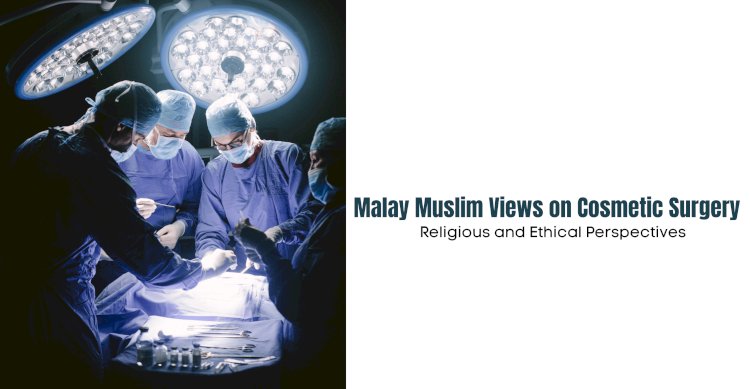


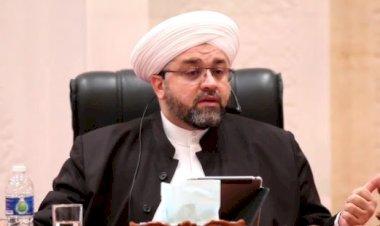
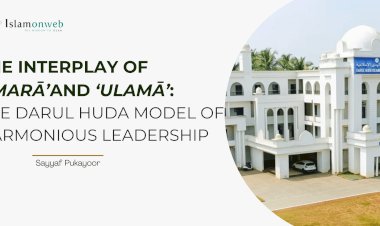
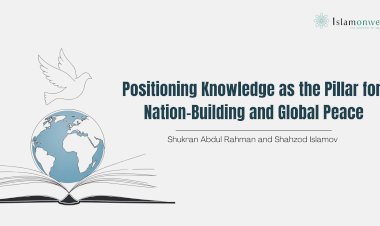


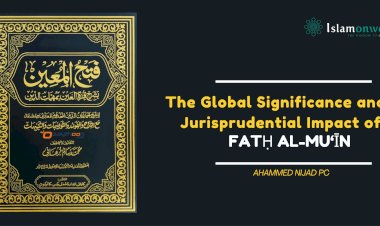














Leave A Comment